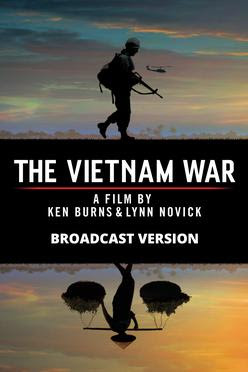The confirmation? Politicians lie.
Duh.
What came as a revelation is something I think I also already knew but didn't want to face so baldly -- the depth of the lies politicians will tell and the lengths they will go to to preserve them, no matter the cost in lives, trust or treasure.
Watching, hour after hour, I confess to being constantly staggered by what they told the public, versus what they knew and said in private -- now known thanks to the passage of time.
There is no partisanship in this observation.
The first and formative lies were told by Democrats -- first by JFK, perhaps our most revered president, then by LBJ, who watched as his Great Society anti-poverty agenda was slowly crushed bneath the weight of a war he could not win and did not think he could not afford to lose.
 |
| THE ARCHITECTS OF WAR: JFK, Robert McNamara and LBJ. |
Needless to say, Republican Richard Nixon was no slouch in the lying department, but by the time he began to tell his whoppers, no one could claim to have clean hands when it came to Vietnam.
There was nothing clean about it.
It was a dirty war, in reasoning, rhetoric and reality.
The soldiers in the field were fighting a dirty jungle war, with no front lines, no clear mission and, no end in sight.
How could a soldier, or anyone for that matter, be expected to maintain their composure, their
motivation, hell, their sanity, after crawling up hill through hellfire and watching friends die to take ultimately meaningless high grounds like "Hamburger Hill," only to have them abandoned by command days later,and quickly re-occupied by the enemy?
The government our soldiers were fighting to preserve in South Vietnam was filthy with corruption and the government that had sent the soldiers there to fight was making a mess of things back home.
Soldiers were shooting students, African-Americans were rioting in the streets and protesters at political conventions, thousands were marching both for and against the conflict and soldiers in Vietnam were asking themselves exactly what they were doing in Southeast Asia.
I was, I admit, admiring of the role the press played in revealing the lies and contradictions at the time.
Reporters like Morley Safer, Joseph Galloway and Neil Sheehan, risked their lives, their reputations and repeatedly spoke truth to power, over and over again, in their pursuit of the truth.
In all honesty, as proud as it made me to be a part of that profession, I don't think I would have had the balls to be a battlefield reporter during that war.
Without their steadfast reporting, most of the country would not have realized what was really going on in Vietnam, as opposed to the lies their government was telling them.
 |
| Civilian women and children were among those murdered at My Lai. |
The war, opposition to it, and Nixon's brilliantly perceptive "southern strategy" in winning the election -- recognizing and cultivating the deep desire of white suburbanites to just make it all go away so their lives could continue on as before -- combined to gouge deep divides in this country which are still visible today in red/blue states on election night maps.
And I fear the lessons of the Vietnam era are lessons we may forget because so much high school history only manages to get as far as World War II, or perhaps the Korean War. And so few people are curious to learn more about a war we "lost."
Worse yet, I fear this forgotten history is on the verge of being repeated as our leadership -- whose only consistent theme seems to be to undo everything accomplished by the previous administration -- shambles incoherently toward a mixed menu of disasters which may soon find us plunged into war, or environmental destruction or an unsustainable disregard for our less fortunate citizens, or all of the above and more.
I have seen some of the criticisms of the film, that it over-simplifies things or has left things out. That may be true. In fact, given the complexities of the time and the length of time it covers, how could that not be the case?
But born in 1964, I am too young to be the judge of that by personal experience.
My earliest memories of an awareness of the war are asking my parents, who were in the kitchen washing the dishes, how many wars America had won and how many had it lost and being puzzled by the meaningful look they exchanged.
Regardless, whether it is complete or not, it strikes me that the 20 hours of education masterfully assembled by Novick and Burns is as good a place as any to start learning those history lessons in the dwindling hope that we don't re-live it.




No comments:
Post a Comment